Knowledge Forum “Making Japan the Chosen Country: International Labor Migration Dynamics in Indonesia”
2024.01.29
Labor shortages in Japan are becoming more severe due to a decreasing birthrate, an aging population, and a shrinking workforce. The number of migrant workers in Japan has significantly risen over the past decade, from 650,000 in 2011 to 1,724,000 in 2020. However, Japan still faces challenges in becoming an attractive destination for migrant workers.
On Dec. 8, 2023, the JICA Ogata Sadako Research Institute for Peace and Development (JICA Ogata Research Institute) hosted a forum to discuss the various aspects of international migration to Japan. The Knowledge Forum examined Indonesia as a case study, which has set a goal of sending 70,000 migrant workers to Japan under the Specified Skilled Worker program within the next five years. The forum explored the current state of international migration mechanisms and initiatives needed to make Japan more attractive to job seekers from Indonesia.
The opening remarks initiated by Miyahara Chie, director general of the JICA Ogata Research Institute, brought up the fact that international labor migration has become a trend, with more than six million workers migrating from Asian countries annually, to set the scene for discussion.
In her introductory presentation, Saito Kiyoko, senior research fellow at the JICA Ogata Research Institute, provided insights into the research on understanding the mechanisms of international migration and the motivations of migrant workers to choose one country of destination over another. Saito pointed out that based on the grounds of push-pull theory, some countries of higher income have not been selected by migrant workers as preferred destinations, while discussing other theories such as risk-benefit, migration network, and aspiration and capability. Saito shared a proportion of the results of a survey conducted in 2022/2023 targeting job seekers, community members, companies and training institutes in Indonesia. The results have shown that a large cohort of the respondents expressed that Japan constituted a “dream” destination for them, yet they refrained from choosing it for migration to work. Aspects like food, anime and safety were seen as aspirations, while issues like long preparation periods, demanding training process that involves language acquisition, difficulty in matching employers’ demand and other factors, discouraged them from choosing Japan as a work destination.
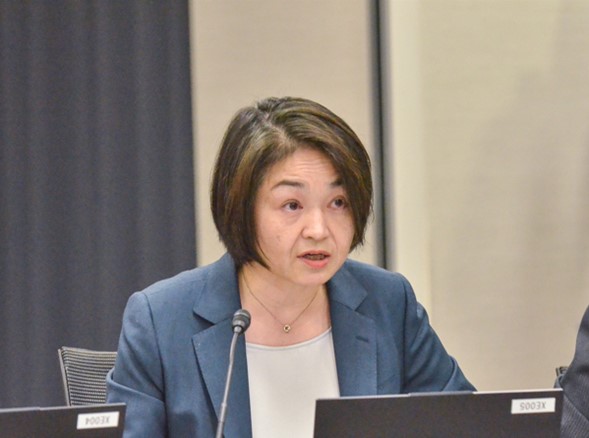
Saito Kiyoko, senior research fellow at the JICA Ogata Research Institute, explains the mechanisms of international migration and the motivations of migrant workers.
The presentation of Asai Akiko, professor at J. F. Oberlin University, demonstrated the profile of 121 Indonesian overseas job seekers in qualitative research that was conducted before applying quantitative analysis. The research introduced potential migration destinations, namely Japan, Hong Kong, Taiwan, Singapore, Malaysia and Saudi Arabia. While respondents had various depictions of the captioned countries/destinations, Japan was seen as a country characterized as safe, providing high salaries, and culturally distinguished, but with high agency fees and long procedures for migrating. While destinations like Hong Kong, Taiwan and Singapore posed as providing relatively good salaries and short-term migration procedures. Malaysia is perceived as having similarities in culture and language, nearly located but with heavy labor conditions and low wages. Based on five case studies, Asai discussed the various factors that contribute to the fluctuations of aspiration, on the grounds of aspiration and capability theory.
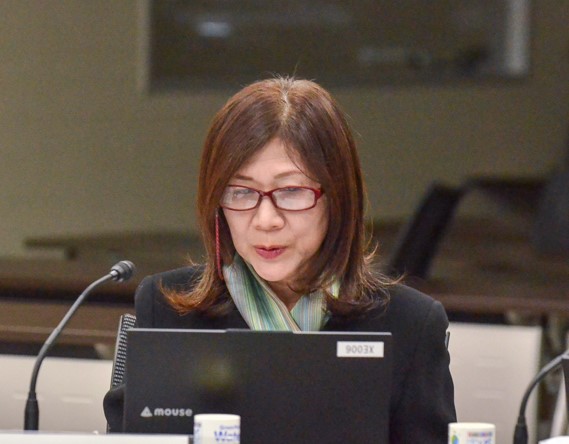
Asai Akiko, professor at J. F. Oberlin University, demonstrates the profile of 121 Indonesian overseas job seekers in qualitative research.
Budianto Firman, a researcher at the Indonesian National Research and Innovation Agency, provided a perspective into the contextual factors that helped shape the recent migration policies. He said that the Indonesian government enacted Law Number 18 Year 2017 on the protection of migrant workers aiming to promote labor migration from Indonesia as skilled workers and to protect overseas job seekers since pre-departure, during migration period, until return. He added that skill acquisition and competency attainment have become prerequisites for the overseas job-seeking process, a shift that indicates the increasing demand for skilled labor over non-skilled. Nevertheless, the macro level structure represented in government policies and measures to protect overseas job seekers have adversely contributed to increasing the complexity of the sending procedures, consequently leading to creating more problems on various levels, including hindering job seekers from making active decisions and self-determination.
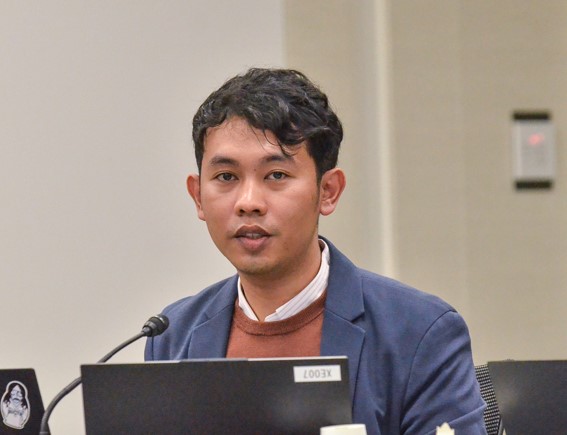
Budianto Firman, researcher at the Indonesian National Research and Innovation Agency, provides a perspective into the contextual factors that helped shape the recent migration policies in Indonesia.
Saito discussed the impact of macro and meso factors on an individual’s decision-making in relation to international labor migration. She analyzed the cases presented in Asai’s presentation in the light of aspiration-capability theory. She explained that the complexity of migration routes has led to the automatic and random placement of job seekers into fixed routes without consideration of proper provision of choice for them. Saito reasoned that creating an aspiration-capable route, which can create a more attractive and safer corridor to Japan, would be a more realistic approach. She concluded her presentation by asking the participants the question “What kind of measures could be taken to create this route?”
Liu-Farrer Gracia, professor at Waseda University, addressed the issue of facilitating labor mobility from Indonesia to Japan. She contended that information is a predetermining factor in shaping aspiration. Gracia pointed out that the presented cases and field experience indicate a general lack of awareness of Japan as a viable work destination. Therefore, Japan’s attractiveness should be communicated to stakeholders and the network resources should be built up. Nishida Motoyuki, JICA expert (advisor for Promotion of Accepting and Sending Foreign Human Resources, Ministry of Manpower, Indonesia), raised some challenges that need to be addressed to tap into the migrant workforce, including the provision of information on application, Japanese language education, and skills and knowledge necessary for overseas work as well as collaboration among support organizations.
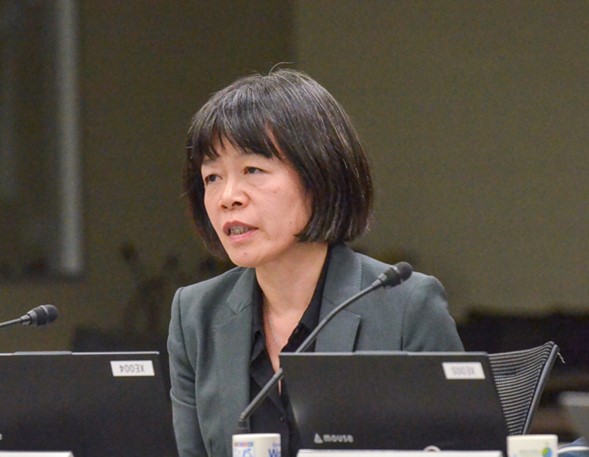
Liu-Farrer Gracia, professor at Waseda University, addresses the issue of facilitating labor mobility from Indonesia to Japan.
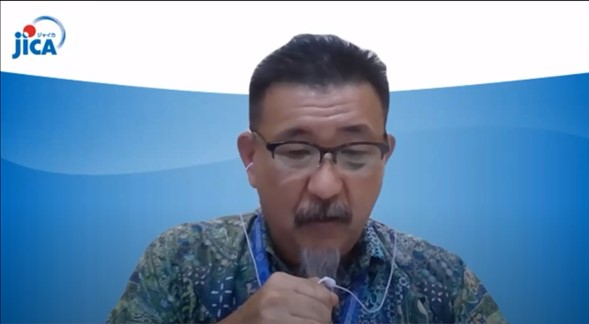
Nishida Motoyuki, JICA expert (advisor for Promotion of Accepting and Sending Foreign Human Resources, Ministry of Manpower, Indonesia), raises some challenges that need to be addressed to tap into the migrant workforce.
In the discussion and Q&A that followed, participants exchanged views on various topics including human rights issues, migrants’ career path development, matching jobs and job seekers, through answering questions from the audience. Asai made comments on the psychological aspect, that is, the desire of people to be treated with respect is something that comes before aspiration. Gracia brought up the need for more transparent standards of qualifications for some professions, while Firman pointed out the absence of a quality control mechanism for sending companies. Nishida insisted that it is essential for both sending and host countries to cooperate in terms of cost-sharing for labor migration in order to establish safe and attractive corridors, and a lively discussion ensued.
In his closing remarks, Shishido Kenichi, special assistant to the president at JICA, expressed his hope that cooperation between Japan and Indonesia in the area of labor migration will promote economic growth and human well-being in both countries.
The recording of the forum is available to watch below.

事業事前評価表(地球規模課題対応国際科学技術協力(SATREPS)).国際協力機構 地球環境部 . 防災第一チーム. 1.案件名.国 名: フィリピン共和国.

事業事前評価表(地球規模課題対応国際科学技術協力(SATREPS)).国際協力機構 地球環境部 . 防災第一チーム. 1.案件名.国 名: フィリピン共和国.

事業事前評価表(地球規模課題対応国際科学技術協力(SATREPS)).国際協力機構 地球環境部 . 防災第一チーム. 1.案件名.国 名: フィリピン共和国.

事業事前評価表(地球規模課題対応国際科学技術協力(SATREPS)).国際協力機構 地球環境部 . 防災第一チーム. 1.案件名.国 名: フィリピン共和国.

事業事前評価表(地球規模課題対応国際科学技術協力(SATREPS)).国際協力機構 地球環境部 . 防災第一チーム. 1.案件名.国 名: フィリピン共和国.
scroll